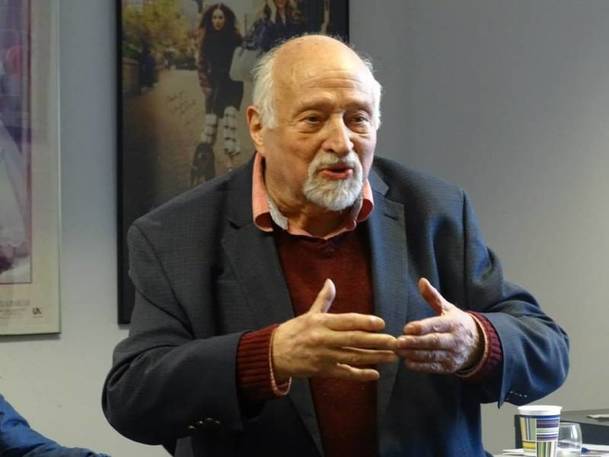


Dean Anthony Julian Tamburri, Excellent director of the "John D. Calandra Italian American Institute" has organized a well-prepared celebration of the life of Giose Rimanelli who started his career in Italy with his novel "Tiro al Piccione" and has been active in the United States for sixty years. He is now ninety.
His first book was honest and direct. The confession of a young man, torn between loyalty to Fascism and incipient discovery of the values of democracy. Clear and precise. We all understood it and admired it. He moved then, first to Canada and then to the US. He had to learn and write in a new language. It was not easy. Now and then, he went back to poetry in his Molisan dialect. He was sure at least a few people would understand his love, his deep desire to communicate.
Many speakers gave lectures about his life and activity. Among the most interesting: Luigi Bonaffini, Peter Carravetta, Fred Gardaphe, Sante Matteo, Mark Pietralunga, Antonio Vitti, Maria Rosaria Vitti-Alexander. They discussed also his poetry in dialect. We heard interesting conclusions. That kind of poetry is a personal desire to reach the few people around you; family and friends.
My father Leone knew how to be obeyed. No dialect in my family. I remember him saying:
"Mario, you have many good ideas and opinions. They will be lost if only a few people will understand you in L'Aquila". I listened and was very careful in using a clear, direct language: my best Italian. I was lucky, winning 33 literary awards. I sent my best Italian plays to England, Russia, Japan; everywhere I knew they had good theaters. I was ignored or rejected.
I knew some French, German, Russian, and a great deal of English. I love this language. It is concise and clear. I translated my best plays into English. They were accepted and performed. The lesson was clear. If you want to communicate your ideas, opinions, and feelings to millions you must translate them into English. I write now only in Italian and English.
How do I choose my language? There is a fascinating force that leads me to Italian or to English. It depends on the characters and ambiance. Some I must write in English, some in Italian. I want to reach everybody. If the ones in Italian fail, I translate them into English later, when I find the time.
I intervened in the Rimanelli celebration. I said clearly what I thought. And now I write it in this article to reach also the other ones: the ones who read.
MARIO FRATTI, professor emeritus of Italian literature at Hunter College, is an internationally acclaimed playwright and drama critic.
Source URL: http://test.casaitaliananyu.org/magazine/focus/op-eds/article/language-how-reach-everybody
Links
[1] http://test.casaitaliananyu.org/files/mariofratti31424998265jpeg